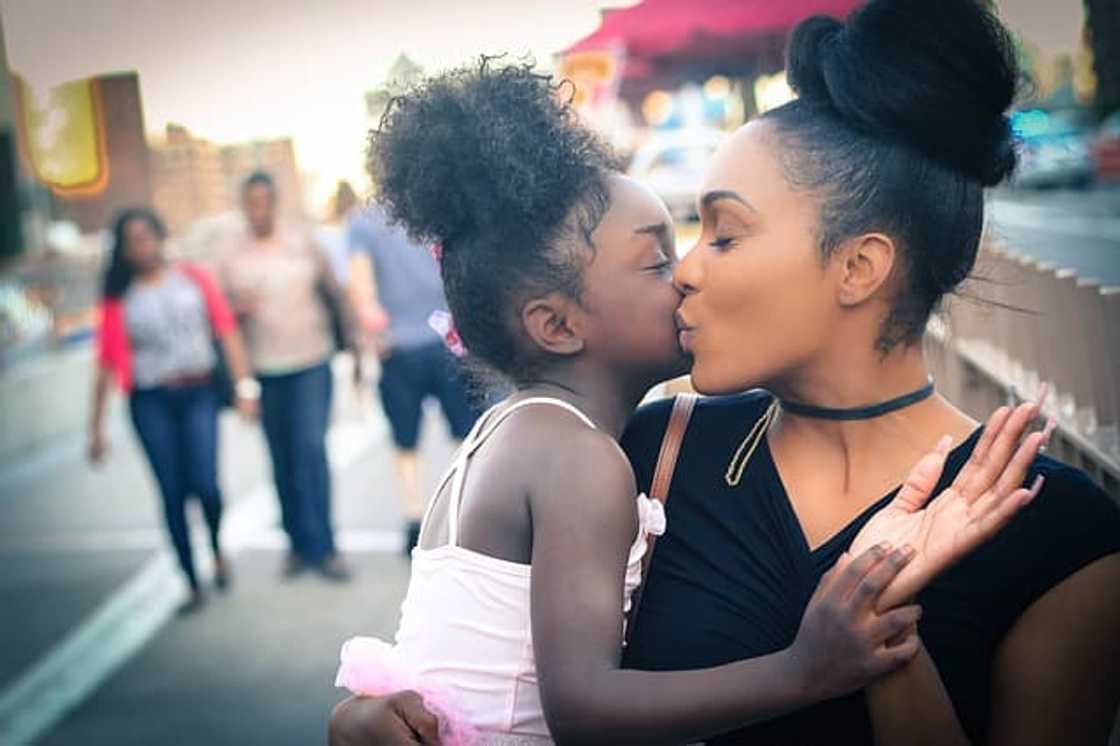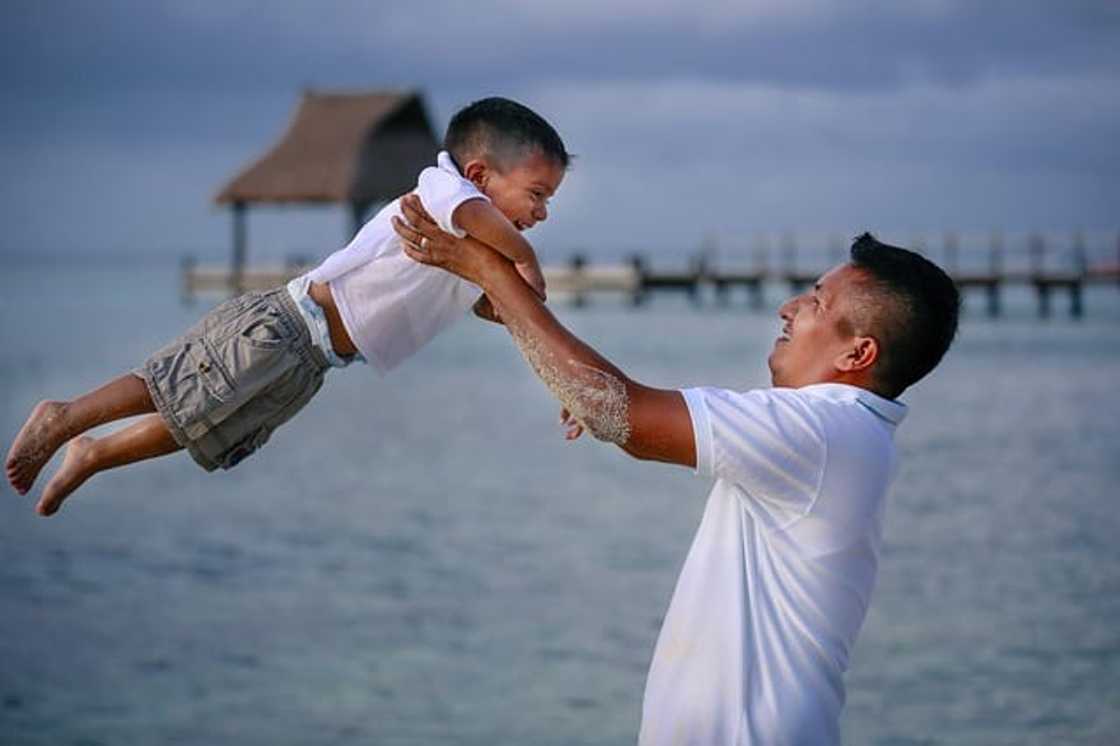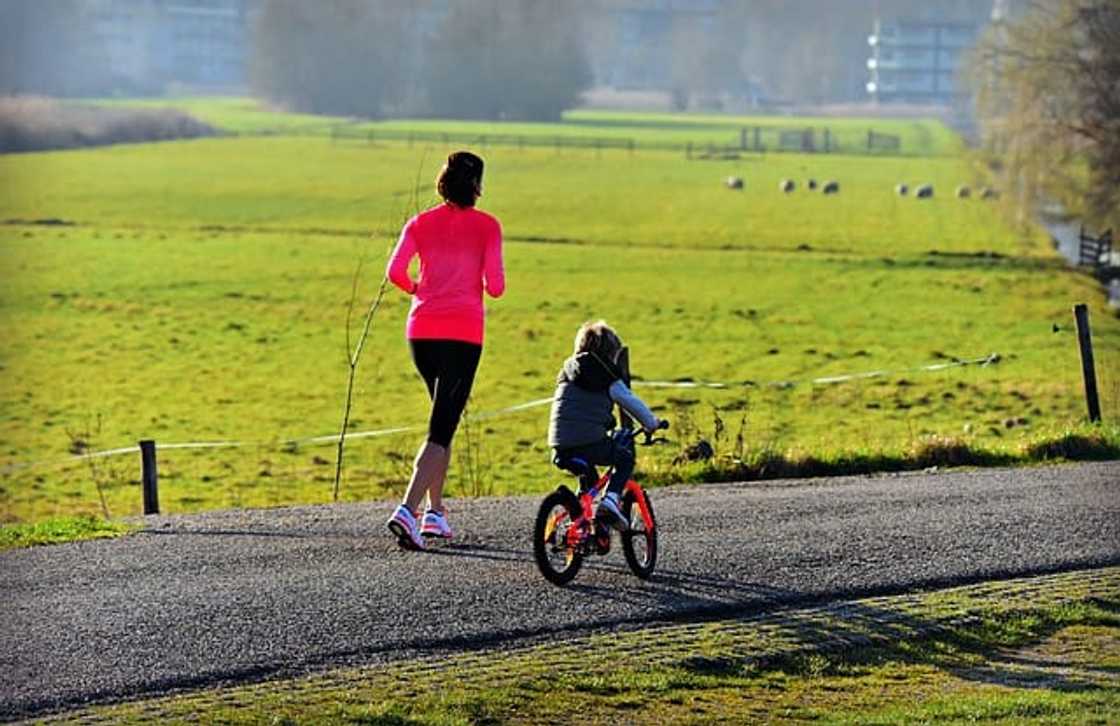How to get full child custody in South Africa
With an increase in the rate of divorce in the country, parents who have a child(ren) at the time their relationship crashes on a continual basis are being faced with issues of who takes care of the child. Consequently, having an understanding of the law that regulates child custody in South Africa is important. So, among other things, this article delves into issues relating to family law in South Africa, laws protecting children's rights in South Africa and what can also be referred to as daddys deals.

Source: UGC
Every parent has an inherent right as well as duty over his or her baby, and this is often referred to as parental rights and responsibilities. However, there are some cases that may hinder a parent from having the opportunity to his or her child as desired. This may be due to divorce, separation or an instance where the parents are not living together. When any of these happens, the problem of who takes full custody of the children often comes up. So, if you find yourself in this situation or you need information on the subject matter, then this article is worth reading.
Parental rights and responsibilities South Africa
A good thing about South Africa is its law which regulates family affairs. According to Wikipedia, family law South Africa has to do with "that subdivision of material private law which researches, describes and regulates the origin, contents and dissolution of all legal relationships between: (i) husband and wife (including the parties to a civil union); (ii) parents, guardians (and other holders of parental rights and responsibilities) and children; and (iii) relatives related through blood and affinity.
READ ALSO: BEE certificate: How to apply for or renew one in 2019?
It is imperative to note that children are valued in South Africa. Whether the parents are married or not and whether both are together or divorced, there are child protection act South Africa which has been established to serve as 'immunity' for the children against any adverse circumstance. For instance, based on Section 18 of the Children’s Act 38 of 2005, the responsibilities that a parent has over his or her children have been defined as the following:
- A person may have either full or specific parental responsibilities and rights in respect of a child.
- The parental responsibilities and rights that a person may have in respect of a child include the responsibility and the right:
- to care for the child
- to maintain contact with the child
- to act as guardian of the child; and
- to contribute to the maintenance of the child
From the afore-definition, it becomes binding on the parents to ensure that adequate care and responsibility is taken over their children. However, in a situation whereby the parents divorce or are unmarried, sections 33 and 34 of the South African Children's Act spells out how to go about the child custody in South Africa. According to the law, it is expected that there should be a kind of a parenting plan which is all about parental rights and responsibilities agreement. If this plan does not work, then, the help of a third party can be consulted.

Source: UGC
Fathers rights child custody South Africa
As part of the laws protecting children's rights in South Africa, based on Section 20 of the Children’s Act No 38 of 2005, the biological married father of a baby has full parental rights and responsibilities if:
- If he is married to the child’s mother, or
- If he was married to the child’s mother at-
- the time of the child’s conception;
- at the time of the child’s birth;
- any time between the child’s conception and birth.
However, as for the divorced fathers rights in South Africa, their rights cover care, custody, guardianship and contact. By implication, if the children are underage and the father's consent is needed at any time, he still reserves the right of a guardian over such children and must be contacted. In case the mother is a substance abuser or an alcoholic, the father can even be awarded the primary residence of the child(ren).
READ ALSO: List of child friendly restaurants Cape Town
If for any reason(s) the mother of a little one denies the father of such access to his child, according to the visitation rights for unmarried fathers in South Africa, such a father can exercise his right. He can embark on this by applying for care and/or contact rights. While this can be done at the Children’s Court, if the father wants to file for guardianship rights as well as care/contact rights, he is expected to apply in the High Court.
More so, as long as the father stays faithful to his responsibilities, based on child maintenance South Africa fathers rights, in a situation in which the mother disallows the father and child access or relationship, the father can litigate. Once the matter appears in the court, an adequate assessment would be made on the reason(s) why the mother does that and then, the court will rule in the best interest of the little one.
How to get full custody of your child in South Africa
When you are seeking full custody of child, there are two steps that you can take. You could ask for the assistance of a social worker or approach any of the offices of the Family Advocate where you would be assisted in drawing a parenting plan. Once that is done, there are Family Advocate forms that would have to be completed which will indicate the Advocate, Social Worker or Psychologist before whom the parental plan was prepared before you go on to register the plan in the court.

Source: UGC
But if the above step does not work, the other option available is to go to court, and on this note, you can approach the highest court in South Africa, divorce court, or children's court. While assuming the custody of the child is not automatic, there are a few things which are often put into consideration according to Section 23 of the Children’s Act No 38 of 2005. Subsection 2 states that the court will have to consider:
- the best interest of the child
- the relationship that exists between you and the child
- the degree of commitment that you have shown to the child so far
- how well you have contributed to the expenses of the child in relation to his or her birth and maintenance.
It is worthy of note that, whether as the father or mother, if you are claiming the custody of your child, the law expects you to come up with persuasive reasons before the court on why the former guardian is no longer suitable for that role again. Also, when it comes to who takes custody of a child when parents aren't married in South Africa, as the father, section 26 of the Child's Act spells out what you can do. You can apply for an amendment on the registration of birth of the child based on Section 11 (4) of the Births and Deaths Registration Acts.
Otherwise, you can apply for an order from the court confirming you as the father of the child if the mother refuses to consent to the amendment explained above. Other instances where you can take this step are if she is not able to give consent because of mental illness, you cannot locate her or she is dead.
READ ALSO: How to register an NGO in South Africa in 2019?
Changing child's surname without father's consent South Africa
On a rational basis, before the surname of a little one can be changed, a written permission of the father must be sought. However, there are unique situations whereby the consent of the father can be waived while attempting to change the surname of a little one. According to Section 25 of the 1992 Births and Deaths Registration Act, the surname of a child can be changed if the marriage of the minor's parents have been dissolved or the father is dead.
Also, if the mother remarries, stays as a widow, or the child as a minor is illegitimate and the birth is registered under the name of the natural father, there can be a consideration for change. And to achieve this, the mother can apply to the Director-General for an alternation to her surname or the new surname that she has resumed. But while doing this, the man whom the mother marries has to give written consent of his approval.
From all that has been said so far, children are important, and so, the government ensures that they are adequately catered for and protected irrespective of what happens to their parents. While parents have to perform their rights and responsibilities over their child(ren), understanding the laws and processes involved before either of them can have child custody in South Africa is important.
READ ALSO: GDE admissions 2019 (2020): Step-by-step guide to online application
Source: Briefly News








